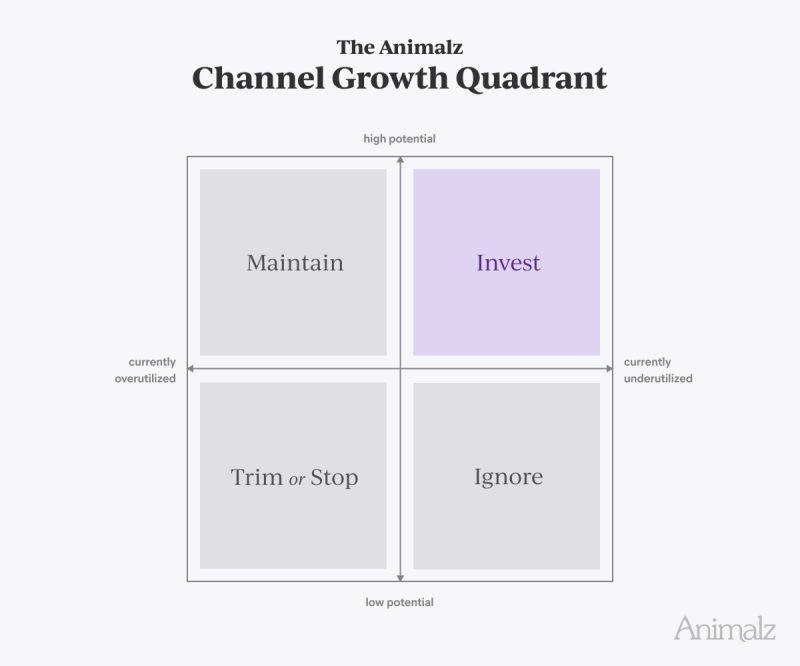517. Do people still SEO? 🐸
How to think about SEO if you're putting together a marketing strategy
Hellooo 👋 So happy to have you here. I’m Kevan. I have spent 15+ years as a head of marketing for some cool tech startups. Now I’ve co-founded a brand storytelling business called Bonfire. We do coaching, advisory, and content. If you identify with creativity and marketing, we’d love for you to join us.
Do people still SEO? Yes and no and kinda sorta

When I got my foot in the door with startups, I fashioned myself a content writer.
“SEO” was waaaaay too fancy and technical a term for what I was doing, which was churning out longform content based on ideas I had, tweets I saw, and things I didn’t know and needed to learn (my backlog was very deep). SEO was for the experts. SEO was magic. SEO was nirvana.
Fast-forward to today, and I struggle to know what exactly to make of SEO.
With our Bonfire clients, we often advise on brand and editorial strategies, marketing channels, and the like. Sometimes this gets deep into the world of content marketing, and we therefore have to confront the question: Do we suggest an SEO strategy? Will we be laughed out of the room if we do? Will we be embraced?
It’s certainly not as obvious of a strategic choice as it used to be. Things have changed:
Content is everywhere: For the past 15 years, everyone has had an SEO strategy of some sort, which means it is harder to rank, harder to stand out, and harder to see results
People are impatient: This new era of efficiency means that the payoff for our marketing strategies has been super condensed: Six months for SEO ROI? Try three months.
Audience habits have changed. Google search is no longer the only way that people discover content and find answers. It’s not even the primary way for many people anymore.
Oh yeah, and AI. Who knows how the influence of AI will change the search experience in the coming months. We may put together an SEO strategy that pays dividends in 2025 only to find that in 2025 people are blinking search queries into personal OpenAI hives within Apple Vision Pros.
What’s a marketing team / leader / agency / strategist supposed to do?
How to think about SEO in April 2024*
*- advice may change as of May 2024
There are many, many well-written posts out there about the current state of content marketing, written by subject matter experts I trust and admire. I would not pretend to have anywhere near the vision that these smarties have. Please read all their stuff if you want to learn more.
Instead, I wanted to share some of the considerations I make as a marketing leader and decision-maker who is considering the big picture: resourcing, multichannel strategies, short-mid-long-term planning.
You’ll see that there is no one right answer, but there’s at least a lot to think about:
1 - Strategy vs execution
I’m not sure I could advise an early-stage company to hire a full-stack, multiperson content marketing team in 2024. I might advise them to hire an editorial team or a multimedia team, but not a team to solely focus on SEO content.
At least, I would make a distinction between SEO strategy and content writing.
This way, you can resource differently toward the two different focuses. There are many fantastic SEO strategists out there and many highly talented content writers. (Let me know if you need an intro to any!)
2 - In-house content marketers vs. freelance content marketers
I’ve written before about when you outsource and when you work in-house.
To quote myself on the virtues of in-house resources:
They know your stuff better than anyone else
You can move super fast because they are in the weeds every day and able to react nimbly to changes
They build institutional knowledge and a history of learnings
They know the customer super well
The team at MKT1 put together a handy visual to show which marketing areas make sense to be resourced in-house or externally. As you can see, there’s a distinction between content strategy and content production, and even between stages of SEO research versus continued optimization.
Strategy belongs in-house.
Execution, especially at scale, can be done externally.
(There are absolutely times when it makes sense to build high-performing content teams in-house. I helped build one at Buffer and at Oyster, and they were hugely important for us. Typically it’s more a matter of timing and team size and business strategy.)
3 - Finding an agency partner
Of course, having just said that strategy belongs in-house and execution can happen externally, wouldn’t you know that most agency partners want to do the strategy as well as the execution!
If there’s already a content person in-house who’s capable of strategy, then I like to have them be the primary POC with the agency and to partner with them on strategy. Alternately, you can look for agencies that only do the content execution work, writing from briefs that your content person has created.
If there’s no content person in-house, then a full-stack SEO agency can be a boon. They are capable of coming up with the keyword research, content topics, etc as well as writing them.
4 - Technology: AI, tools, and programmatic
What do your CEOs and CMOs know? They know that AI is making a lot of stuff redundant and that tooling and engineering can help you scale efficiently.
Therefore, I have to be prepared to address all this when it comes to making SEO suggestions.
For better or worse, strategic or not, these are the things on the minds of many leaders:
Can we just have AI make us a bunch of content
Can we do the programmatic thing and let engineering make stuff fo rus
Aren’t there tools for this now?
Sometimes, these suggestions might make sense (though rarely the “AI make us content” suggestion). And in any case, these are arguments we need to address, ideally tying our recommendation back to business strategy, resourcing, and a clear timeline for when results will come.
5 - What does search look like 2 years from now?
What does search look like in the future? Who knows!
Therefore, a lot of the time when I’m thinking about SEO strategies, I’m hedging.
How can you create SEO content today that is multipurpose and can be used across other channels?
The team at Animalz has a really useful graphic to show the way they’ve evolved their content agency to think more in terms of multichannel impact.
This matrix helps them:
Objectively evaluate the reach and feasibility of each channel.
Identify a shortlist of high-impact channels to focus on.
Diversify distribution efforts to maximize growth.
From my perspective, this diversification can mean that you are finding new channels on which to distribute your written content — SEO (sure), but also email and social and syndication and partnerships. It can also mean that you are diversifying the way in which you’re creating the content — written posts (sure), but also posts that contain video or shareable graphics or audio content or slideshows.
This way you’re de-risking yourself from future changes by giving you and your content team the flexibility to adapt to whatever channels may be working in three months, six months, 12 months, or longer.
Over to you
What do you think of the current state of SEO? How are you managing through it as a content writer, SEO expert, or marketing leader? I’d love to hear your opinion.
About this newsletter …
Hi, I’m Kevan, a marketing exec based in Boise, Idaho, who specializes in startup marketing and brand-building. I previously built brands at Oyster, Buffer, and Vox. Now I am cofounder at Bonfire, a brand storytelling company.
Each week on this substack, I share playbooks, case studies, stories, and links from inside the startup marketing world. Not yet subscribed? No worries. You can check out the archive, or sign up below:
Thank you for being here! 🙇♂️
I’m lucky to count folks from great brands like these (and many more) as part of this newsletter community.







